
ABOUT
ROYAL FAMILIES
In essence, every royal family in every country (where one exists)
operates in similar manner to their counterparts in other geographical
regions with variations as to absolute, constitutional or semi
constitutional construction. Notably, the UK has no
written constitution.
A monarch is the head of a monarchy, a form of government in which a state or polity is ruled by an individual who normally rules for life or until abdication, and typically inherits the throne by birth. Monarchs may be autocrats (as in all absolute monarchies) or may be ceremonial figureheads, exercising only limited or no reserve powers at all, with actual authority vested in a legislature and/or executive cabinet (as in many constitutional monarchies).
In many cases, a monarch will also be linked with a state religion. Most states only have a single monarch at any given time, although a regent may rule when the monarch is a minor, not present, or otherwise incapable of ruling. Cases in which two monarchs rule simultaneously over a single state, as is the current situation in Andorra, are known as coregencies.
Monarchs are distinguished by their titles and styles, which in most cases are defined by tradition, and guaranteed under the state's constitution. A variety of titles are applied in English; for example, "king" and "queen", "prince" and "princess", "emperor" and "empress". Although they will be addressed differently in their local languages, the names and titles in the list below have been styled using the common English equivalent. Roman numerals, used to distinguish related rulers with the same name, have been applied where typical.
In political and sociocultural studies, monarchies are normally associated with hereditary rule; most monarchs, in both historical and contemporary contexts, have been born and raised within a royal family. Succession has been defined using a variety of distinct formulae, such as proximity of blood, primogeniture, and agnatic seniority. Some monarchies, however, are not hereditary, and the ruler is instead determined through an elective process; a modern example is the throne of Malaysia. These systems defy the model concept of a monarchy, but are commonly considered as such because they retain certain associative characteristics. Many systems use a combination of hereditary and elective elements, where the election or nomination of a successor is restricted to members of a royal bloodline.
Entries below are listed beside their respective dominions, which are organised alphabetically. These monarchs reign as head of state in their respective sovereign states. Monarchs reigning over a constituent division, cultural or traditional polity are listed under constituent monarchs.

This map shows the world's monarchies, divided into those that rule directly and those that simply reign.
FIFTEEN
RICHEST ROYALS @ 2008
1. King Bhumibol Adulyadej
of Thailand
Age: 90
Net worth: £18.79 billion
2. Sheikh Khalifa bin Zayed Al Nahyan of the United Arab Emirates
Age: 70
Net worth: £12.35 billion
3. King Abdullah bin Abdul Aziz of Saudi Arabia
Age: 94
Net worth: £11.27 billion
4. Sultan Haji Hassanal Bolkiah of Brunei
Age: 72
Net worth: £10.74 billion
5. Sheikh Mohammed bin Rashid Al Maktoum of Dubai
Age: 68
Net worth: £9.66 billion
6. Prince Hans-Adam II von und zu Liechtenstein of Liechtenstein
Age: 73
Net worth: £2.68 billion
7. Sheikh Hamad bin Khalifa Al Thani of Qatar
Age: 66
Net worth: £1.07 billion
8. King Mohammed VI of Morocco
Age: 56
Net worth: £805.4 million
9. Prince Albert II of Monaco
Age: 60
Net worth: £751.7 million
10. Sultan Qaboos bin Said of Oman
Age: 77
Net worth: £590.1 million
11. Prince Karim Al Hussein
Age: 81
Net worth: £536.9 million
12. Queen Elizabeth II
Age: 92
Net worth: £349 million
13. Sheikh Sabah Al-Ahmad Al-Jaber Al-Sabah of Kuwait
Age: 99
Net worth: £268 million
14. Queen Beatrix Wilhelmina Armgard of the Netherlands
Age: 80
Net worth: £161 million
15. King Mswati III of Swaziland
Age: 50
Net worth: £107.4 million
BRITISH
ROYALS GALLERY 2018
|
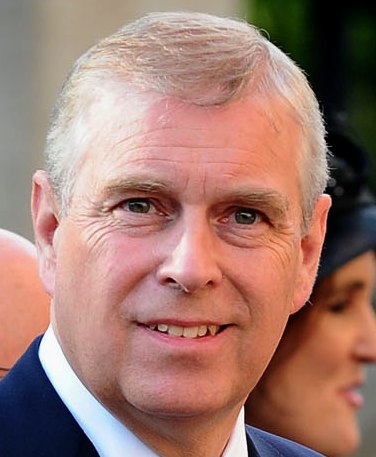
Andrew
Duke of York
|
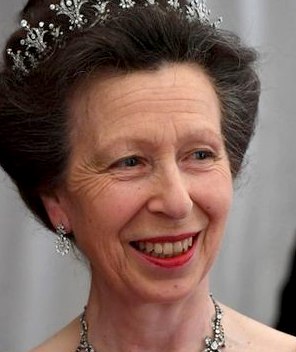
Anne
Princess Royal
|
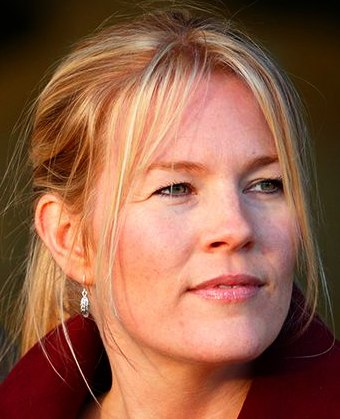
Autumn
Phillips
|

Beatrice
of York
|
|
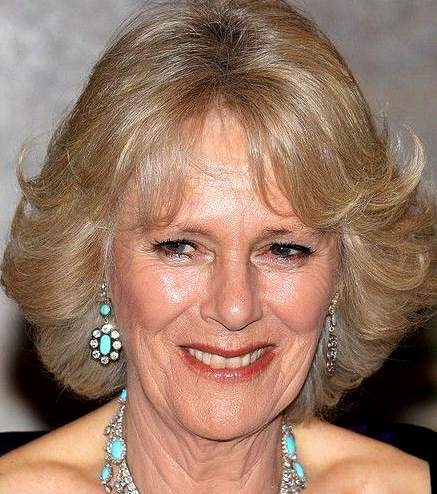
Camilla
Duchess Cornwall
|
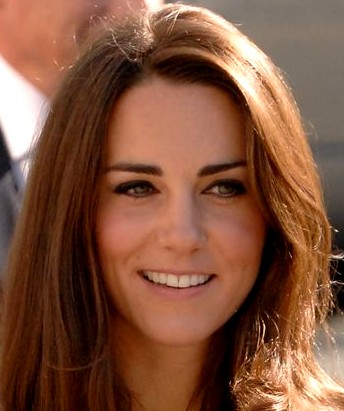
Catherine
Duchess Cambridge
|
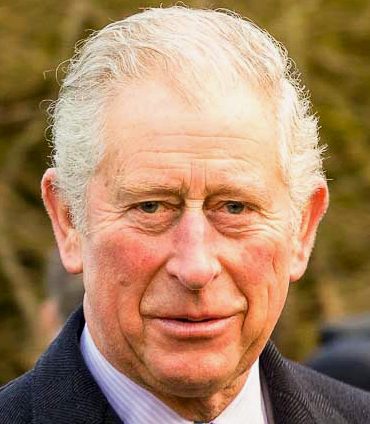
Charles
Prince Wales
|
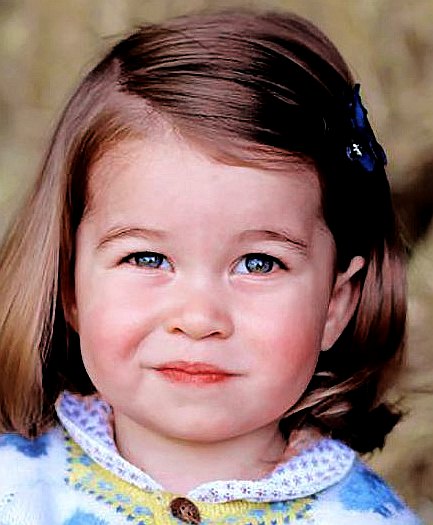
Charlotte
of Cambridge
|
|
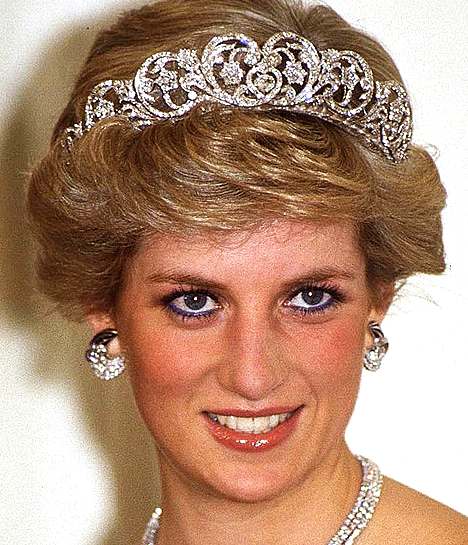
Dianna
Princess Wales
|
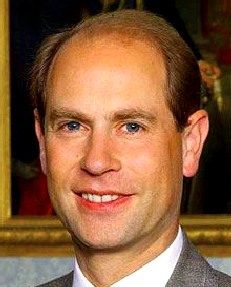
Edward
Earl Wessex
|
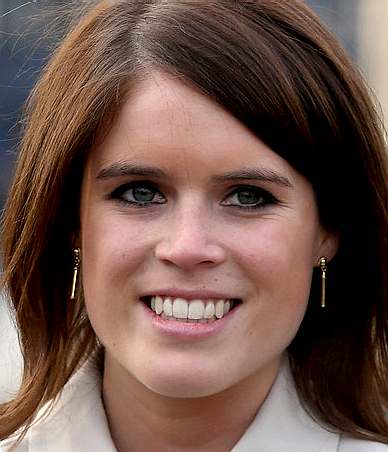
Eugenie
of York
|
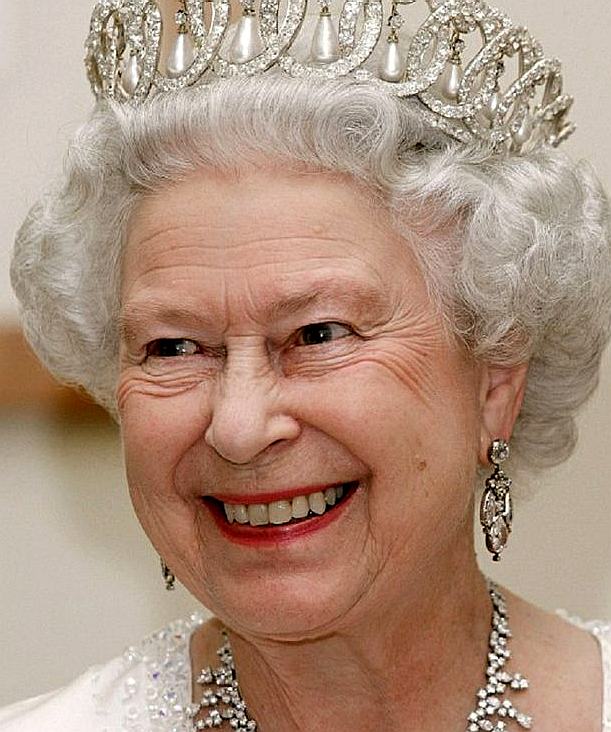
Elizabeth
Majesty Queen
|
|
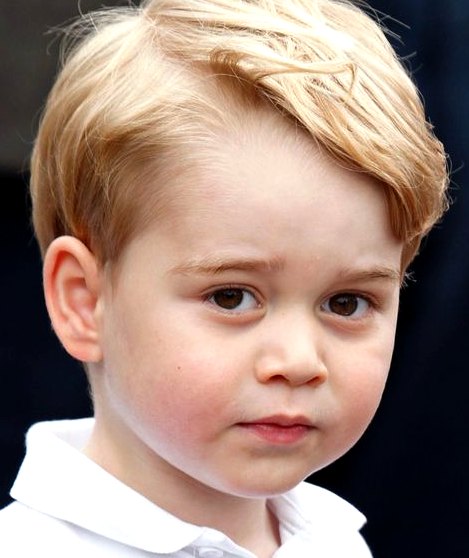
George
of Cambridge
|
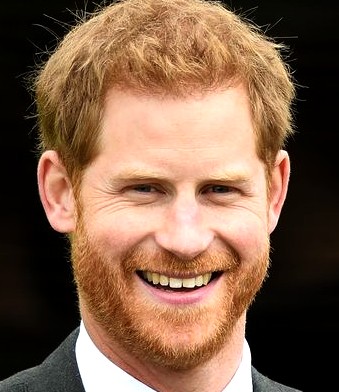
Harry
Duke Sussex
|
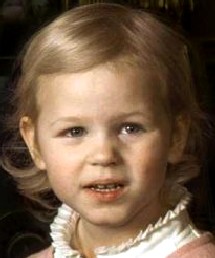
Isla
Phillips
|

Jack
Brooksbank
|
|
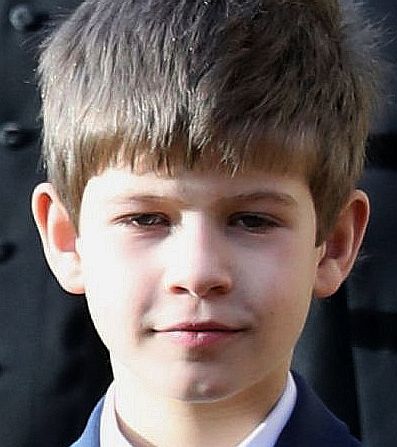
James
Viscount Severn
|

Lena
Tindall
|

Louis
of Cambridge
|
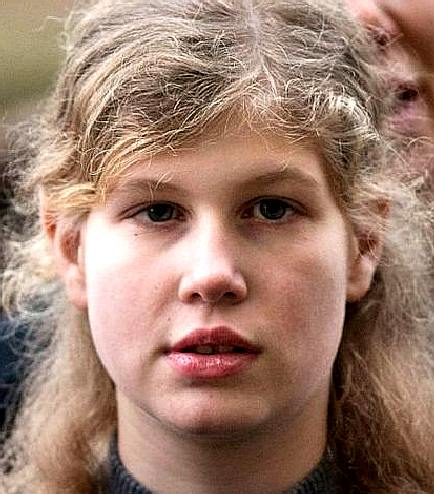
Louise
Lady Windsor
|
|

Mark
Captain Phillips
|
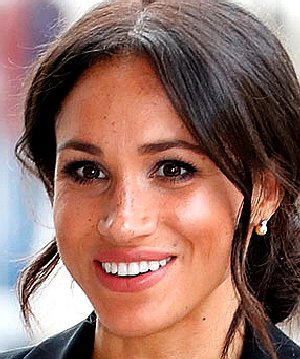
Meghan
Duchess Sussex
|
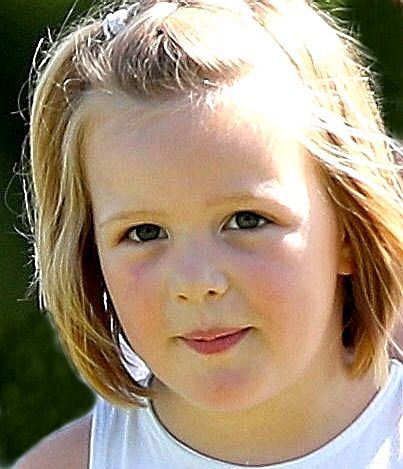
Mia
Grace Tindall
|
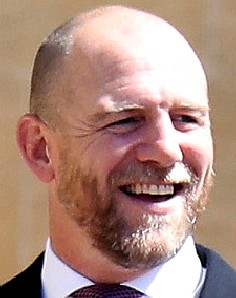
Mike
Tindall
|
|
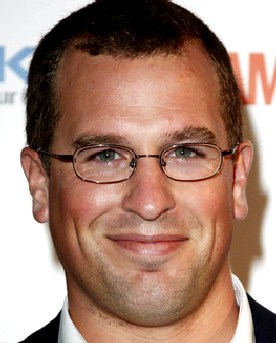
Peter
Phillips
|
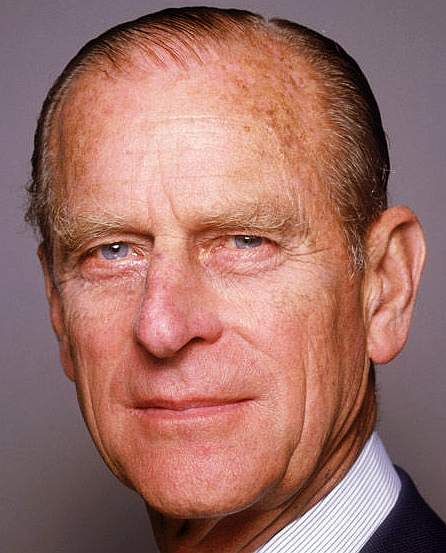
Philip
Duke Edinburgh
|
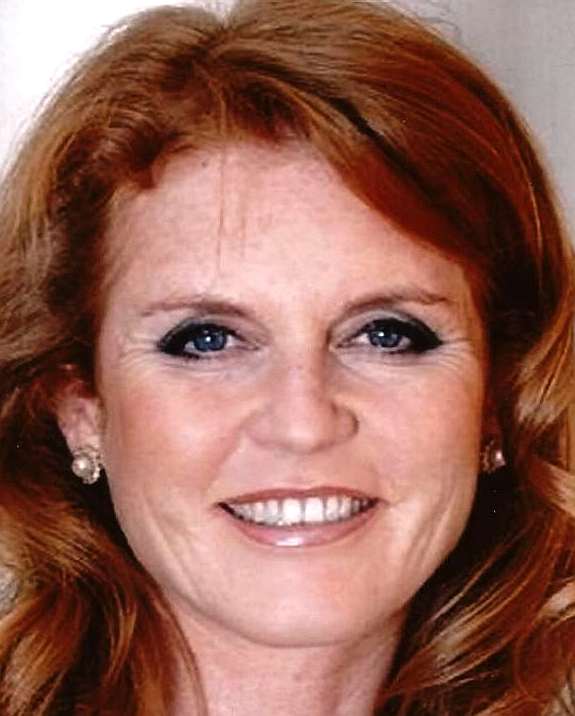
Sarah
Duchess York
|

MP
Savannah
Phillips
|
|
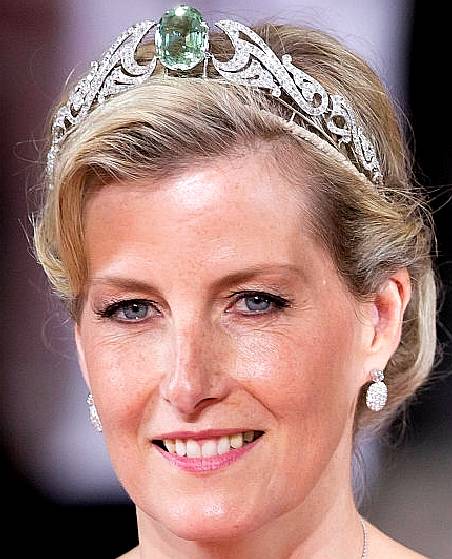
Sophie
Countess Wessex
|
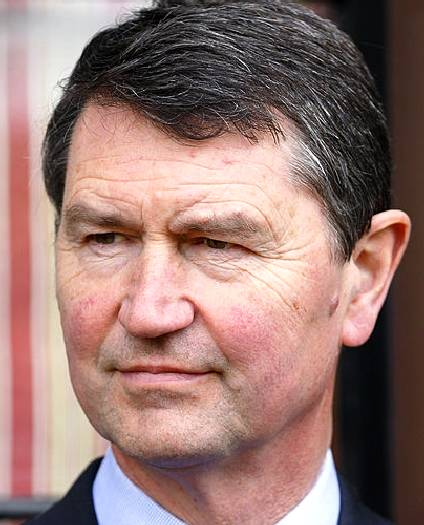
Timothy
Laurence V. Admiral
|
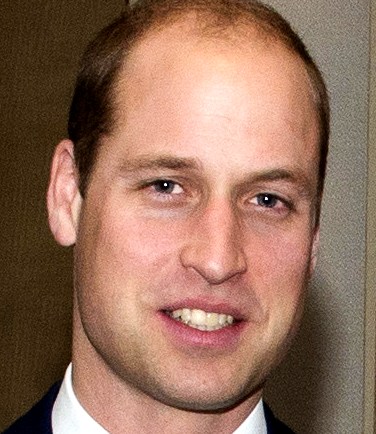
William
Duke Cambridge
|
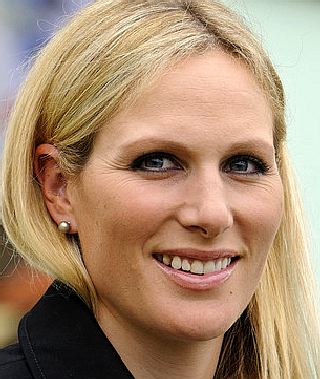
Zara
Tindall
|
MEMBERS
OF ROYAL FAMILIES
A royal family typically includes the spouse of the reigning monarch, surviving spouses of a deceased monarch, the children, grandchildren, brothers, sisters, and paternal cousins of the reigning monarch, as well as their spouses. In some cases, royal family membership may extend to great grandchildren and more distant descendants of a monarch. In certain monarchies where voluntary abdication is the norm, such as the Netherlands, a royal family may also include one or more former monarchs. In certain instances, such as in Canada, the royal family is defined by who holds the styles Majesty and Royal
Highness. There is often a distinction between persons of the blood royal and those that marry into the royal family. Under most systems, only persons in the first category are dynasts, that is, potential successors to the throne (unless the member of the latter category is also in line to the throne in their own right, a frequent occurrence in royal families which frequently intermarry). This is not always observed; some monarchies have operated by the principle of jure uxoris.
In addition, certain relatives of the monarch (by blood or marriage) possess special privileges and are subject to certain statutes, conventions, or special common law. The precise functions of a royal family vary depending on whether the polity in question is an absolute monarchy, a constitutional monarchy, or somewhere in between. In certain monarchies, such as that found in Saudi Arabia or Kuwait, or in political systems where the monarch actually exercises executive power, such as in Jordan, it is not uncommon for the members of a royal family to hold important government posts or military commands. In most constitutional monarchies, however, members of a royal family perform certain public, social, or ceremonial functions, but refrain from any involvement in electoral politics or the actual governance of the country.
The specific composition of royal families varies from country to country, as do the titles and royal and noble styles held by members of the family. The composition of the royal family may be regulated by statute enacted by the legislature (e.g. Spain, the Netherlands, and Japan since 1947), the sovereign's prerogative and common law tradition (e.g. the United Kingdom), or a private house law (e.g., Liechtenstein, the former ruling houses of Bavaria, Prussia, Hanover, etc.). Public statutes, constitutional provisions, or conventions may also regulate the marriages, names, and personal titles of royal family members. The members of a royal family may or may not have a surname or dynastic name (see Royal House).
In a constitutional monarchy, when the monarch dies, there is always a law or tradition of succession to the throne that either specifies a formula for identifying the precise order of succession among family members in line to the throne or specifies a process by which a family member is chosen to inherit the crown. Usually in the former case the exact line of hereditary succession among royal individuals may be identified at any given moment during prior reigns (e.g. United Kingdom, Sark, Nizari Ismailis, Japan, Balobedus, Sweden, Kingdom of Benin) whereas in the latter case the next sovereign may be selected (or changed) only during the reign or shortly after the demise of the immediately preceding monarch (e.g. Cambodia, KwaZulu Natal, Buganda, Saudi Arabia, Swaziland, Yorubaland, The Kingitanga). Some monarchies employ a mix of these selection processes (Malaysia, Monaco, Tonga, Jordan, Morocco), providing for both an identifiable line of succession as well as authority for the monarch, dynasty or other institution to alter the line in specific instances without changing the general law of succession. Some countries have abolished royalty altogether, as in post-revolutionary France (finally in 1870) and Russia (1917).
CURRENT
ROYAL FAMILIES
Africa
Americas
|
Asia
|
Europe
Middle
East
Oceania
|
DEPOSED
ROYAL FAMILIES
|
UNITED
NATIONS INTERNATIONAL SUSTAINABILITY AGENDAS
Many
countries including the United
Kingdom are member of the United Nations and a signatory to the
Universal Declaration of Human Rights. As such Britain is bound to
secure, or attempt to aspire to sustainability development goals below
such as eliminating discrimination,
working towards justice for all and eliminating hunger and poverty.
This is likely to mean providing affordable housing and a reduction in
financial slavery brought about by the present renting society. We also
need good services
and cheap energy for a truly circular economy:
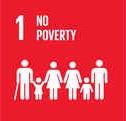
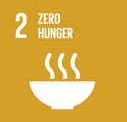


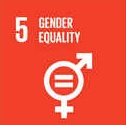

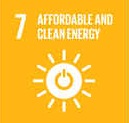
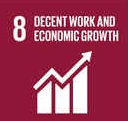
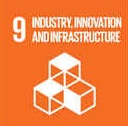
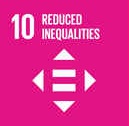
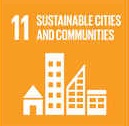
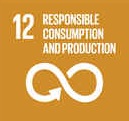
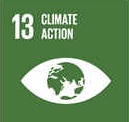
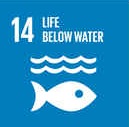
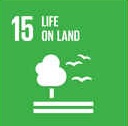
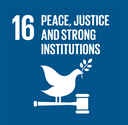
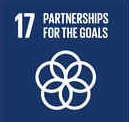

A
TO Z OF INTERNATIONAL ROYALTY
AFGHANISTAN: HM King Mohammad Zahir Shah passed away in the Summer of 2007 / Heir: HRH Crown Prince Ahmed Shah Khan
(http://en.wikipedia.org/wiki/Mohammed_Zahir_Shah)
ALBANIA: HM King Leka I / Heir: HRH Crown Prince Keka
(http://en.wikipedia.org/wiki/Leka,_Crown_Prince_of_Albania)
ANTIGUA AND BARBUDA: HM Queen Elizabeth II / Heir: HRH Prince Charles, the Prince of Wales
(http://en.wikipedia.org/wiki/Elizabeth_II_of_the_United_Kingdom)
ASIA (The "de jure" sovereign kings, emirs, etc. of various former little nations --- too many to keep track of) (See: "Royal News," December 2007)
AUSTRALIA: HM Queen Elizabeth II / Heir: HRH Prince Charles, the Prince of Wales
(http://en.wikipedia.org/wiki/Elizabeth_II_of_the_United_Kingdom)
AUSTRIA-HUNGRY: HIRH Archduke Otto von Hapsburg, Royal Prince of Bohemia (The archduke passed away and there is a dispute over the so-called heir, whose qualification do not fit with the House statues or family constitutional law of succession)
(http://otto.twschwarzer.de)
BAHAMAS: HM Queen Elizabeth II / Heir: HRH Prince Charles, the Prince of Wales
(http://en.wikipedia.org/wiki/Elizabeth_II_of_the_United_Kingdom)
BARBADOS: HM Queen Elizabeth II / Heir: HRH Prince Charles, the Prince of Wales
(http://en.wikipedia.org/wiki/Elizabeth_II_of_the_United_Kingdom)
BAHRAIN: HM King Shaikh Hamad bin Isa Al-Khalifa / Heir: HH Crown Prince Shaikh Sulman bin Hamad al-Khalifa
(http://en.wikipedia.org/wiki/Hamad_ibn_Isa_Al_Khalifah)
BELGIUM: HM King Philippe / Heir: Princess Elisabeth, Duchess of Brabant
(www.monarchie.be/en/index.php)
BELIZE: HM Queen Elizabeth II / Heir: HRH Prince Charles, the Prince of Wales
(http://en.wikipedia.org/wiki/Elizabeth_II_of_the_United_Kingdom)
BHUTAN: HM King Jigme Singye Wangchuck / Heir: HRH Dasho Kesar Jigme Wangchuk
(http://bhutan2008.blogspot.com/2007
/04/kings-of-bhutan.html)
(www.bhutanmajestictravel.com/bhutan-100-years-of-monarchy)
BRAZIL: HIRH the Prince Dom Pedro Carlos of Orleans and Bragança / Heir: HIH Prince Pedro Thiago of Orléans-Braganza
(http://en.wikipedia.org/wiki/Prince_Pedro_Carlos_of_Orl%C3%A9ans-Braganza)
BRAZIL: HIRH Prince Dom Luís of Orléans-Braganza / Heir: HIRH Prince Dom Bertrand of Orléans-Braganza
(www.monarquia.org.br)
BRUNEI: HM Sultan Haji Hassanal Bolkiah of Brunei and Yang Di-Pertuan of Negara Darussalam / Heir: HRH Crown Prince Muda Haji al-Muhtadee Billah ibni Sultan Haji Hassanal Bolkiah Mu
(www.brunei.gov.bn/government)
BULGARIA: HM King Simeon II, elected Prime Minister 2001 / Heir: HRH Crown Prince Kardám, Prince of Tirnovo
(www.b-info.com/places/Bulgaria/Royal/Simeon)
BURUNDI: HRH Crown Princess Rose Paula Iribagiza / Heir: Prince Charles Muhirwa
(www.guide2womenleaders.com/womeninpower/Womeninpower1970.htm)
CAMBODIA: HM King Norodom Sihamoni of Cambodia
(www.norodomsihamoni.org)
(www.norodomsihanouk.info)
CANADA: HM Queen Elizabeth II / Heir: HRH Prince Charles, the Prince of Wales
(http://en.wikipedia.org/wiki/Elizabeth_II_of_the_United_Kingdom)
DENMARK: HM Queen Margrethe II of Denmark / Heir: HRH Crown Prince Frederik
(www.denmark.dk/en/menu/AboutDenmark/RoyalDenmark)
(www.kongehuset.dk)
EGYPT: HM King Ahmed Fouad II / Heir: Prince Muhammad Ali
(http://en.wikipedia.org/wiki/Fuad_II_of_Egypt)
(www.geocities.com/hazemsakr/royal)
ETHIOPIA: HIH Crown Prince Zera Yacob Amha-Selassie
(www.ethiopiancrown.org)
FRANCE: The Royal House: HRH Prince Henri Philippe Pierre Marie d'Orléans, Comte de Paris, "de jure" King of France / Heir: HRH Jean, Duke of Vendôme—designated "regent" for his older brother: HRH Prince François, Count of Clermont.
(www.maisonroyale.org)
FRANCE: A Competing Royal House: HRH Prince Luis Alfonso Gonzalo Víctor Manuel Marco de Borbón y Martínez-Bordiú, Duke of Anjou, Duke of Bourbon and Duke of Touraine / Heir presumptive: HM King Carlos I of Spain
(http://en.wikipedia.org/wiki/Louis_Alphonse,_Duke_of_Anjou)
FRANCE: The Imperial House: HIH Prince Charles Napoléon / Heir: HIH Prince Jean-Christophe Louis Ferdinand Albéric Napoléon
(www.charlesnapoleon.com)
(http://en.wikipedia.org/wiki/Jean-Christophe
_Bonaparte)
GEORGIA: HRH Prince Nugzar Bagration-Gruzinsky / Heir: HRH Princess Anna Bagration-Gruzinsky
(See: "The Royal Line of Kings and True
Successors of the Kingdom of Georgia")
(See also: "A Statement Issued by the Chancelleryof the Royal House of Georgia")
GERMANY--Anhalt: HH Julius Eduard, Duke of Anhalt (http://en.wikipedia.org/wiki/Eduard,_Prince
_of_Anhalt)
GERMANY--Baden: HDGH Maximilian Andreas Friedrich Gustav Ernst August Bernhard, Grand Duke of Baden / Designated Heir: Bernhard, Hereditary Prince of Baden
(http://en.wikipedia.org/wiki/Maximilian,_Margrave_of_Baden)
GERMANY--Bavaria: HRH Duke Franz von Bayern / Heir: HRH Prince Max-Emanuel Ludwig Maria Herzog in Bayern, Duke in Bavaria
(www.jacobite.ca/kings/francis2.htm)
GERMANY--Hanover & Bruswick: HRH Prince Ernst August V / Heir: HRH Prince Ernst August of Hanover, Duke of Brunswick-Lüneburg
(www.welfen.de)
GERMANY--Hesse: HRH Prince Moritz Friedrich Karl Emanuel Humbert Landgraf of Hessen-Kassel, Grand Duke of Hesse and by Rhine / Heir: HRH Prince Donatus of Hesse
(http://en.wikipedia.org/wiki/Moritz,_Landgrave_of_Hesse)
GERMANY--Lippe-Biesterfeld: HSH Friedrich Wilhelm, Prince of Lippe (This is contested by HSH Prince Armin of Lippe who renounced his rights in 1953)
(http://en.wikipedia.org/wiki/Armin,_Prince_of_Lippe)
GERMANY--Mecklenburg-Schwerin & Strelitz: HIRH Prince Georg Friedrich, Prince of Prussia, Grand Duke of Mecklenburg / Heir presumptive: HRH Prince Christian-Sigmund of Prussia
GERMANY--Oldenburg: HRH Anton Günther, Grand Duke of Oldenburg / Heir: HRH Christian, Duke of Oldenburg
(http://en.wikipedia.org/wiki/Anton-G%C3%BCnther,_Duke_of_Oldenburg)
GERMANY--Prussia: HRIH Prince Georg Friedrich / Heir presumptive: HRH Prince Christian-Sigmund of Prussia
(www.preussen.de/en/today.html)
GERMANY--Reuss-Schleiz: Heinrich VIII
GERMANY--Reuss-Schleiz-Köstritz: HSH Prince Heinrich IV
GERMANY--Saxe-Coburg and Gotha: HSH Andreas Michael Friedrich Hans Armin Siegfried Hubertus / Heir: HSH Hubertus, Hereditary Prince of Saxe-Coburg and Gotha
(http://en.wikipedia.org/wiki/Andreas,_Prince_of_Saxe-Coburg_and_Gotha)
GERMANY--Saxe-Meiningen: HSH Prince Johann Friedrich Konrad Carl Eduard Horst Arnold Matthias Prinz von Sachsen-Meiningen, Duke of Saxe-Meiningen / Heir: HSH Princess Feodora of Saxe-Meiningen
(http://en.wikipedia.org/wiki/Duke_Frederick_Konrad_of_Saxe-Meiningen)
GERMANY--Saxe-Weimar-Eisenach: HSH Prince Michael-Benedict, Grand Duke of Saxe-Weimar-Eisenach
(www.btinternet.com/~allan_raymond/Saxe_Weimar_Royal_Family.htm)
GERMANY--Saxony: HRH Prince Maria Emanuel, Margrave of Meissen / Heir: HRH Alexander Prinz von Sachsen-Gessaphe (adopted)
(http://en.wikipedia.org/wiki/Maria_Emanuel,_Margrave_of_Meissen)
GERMANY--Schaumburg-Lippe: HSH Prince Ernst August Alexander Christian Viktor Hubert / Heir: HSH Prince Heinrich-Donatus
(http://en.wikipedia.org/wiki/Alexander,_Prince_of_Schaumburg-Lippe)
GERMANY--Waldeck & Pyrmont: HRH Prince Wittekind / HRH Prince Carl-Anton
(http://en.wikipedia.org/wiki/Wittekind_Adolf,_Prince_of_Waldeck_and_Pyrmont)
GERMANY--Württemberg: HRH Carl, Duke of Württemberg / Heir: HRH Prince Friedrich
(http://en.wikipedia.org/wiki/Carl,_Duke_of_W%C3%BCrttemberg)
GERMANY (The "de jure" sovereign high nobility of the former Holy Roman Empire are considered royalty and are composed of dukes, princes, and counts --- too many to keep track of) (See Chapters: "Sovereignty and Mediatization" and "Sovereignty and Royalty," under the article "Sovereignty & The Future of Nobility and Royalty")
GHANA--Ashanti:: HM Asantehene Osei Tutu II
(http://en.wikipedia.org/wiki/Otumfuo_Nana_Osei_Tutu_II)
GRENADA: HM Queen Elizabeth II / Heir: HRH Prince Charles, the Prince of Wales
(http://en.wikipedia.org/wiki/Elizabeth_II_of_the_United_Kingdom)
GREECE: HM King Constantine II of the Hellenes / Heir: HRH Crown Prince Pavlos
(www.greekroyalfamily.org)
HAWAII: H.R.H. Prince Quentin Kuhio Kawananakoa / Heir: HRH Prince Kincaid Kawananakoa (www.4dw.net/royalark/Hawaii/hawaii10.htm)
INDIA (The "de jure" sovereign princes of the Empire of India (maharajas, rajas, etc. of former kingdoms and principalities
- too many to keep track of)
INDONESIA: (The "de jure" sovereign princes of Indonesia (sultand, rajas, etc. of former kingdoms and principalities
- too many to keep track of)
IRAN: HIH Crown Prince Reza Pahlavi / Heir presumptive: HIH Prince Ali Reza Pahlavi
(http://en.wikipedia.org/wiki/Reza_Pahlavi)
(www.rezapahlavi.org)
IRAQ: HRH Prince Ra'ad, Head of the Royal Family
(http://en.wikipedia.org/wiki/Prince_Ra'ad)
IRAQ: HRH Prince Sharif Ali Bin al-Hussein, claimant, Head of the "Iraq Constitutional Monarchy" association
(www.iraqcmm.org)
ITALY: HRH Prince Vittorio Emanuele, Prince of Naples, Duke of Savoy / Heir: HRH Prince Emanuel Filiberto, Prince of Venice
(www.disavoia.it)
ITALY: HRH Prince Amedeo, Duke of Aosta, Duke of Savoy / Heir: HRH Prince Aimone, Duke of Apulia
(www.realcasadisavoia.org)
ITALY--Parma: HRH Carlos Hugo, Duke of Parma and Piacenza / Heir: HRH Prince Carlos of Bourbon-Parma, Prince of Piacenza, Duke of Madrid
(http://en.wikipedia.org/wiki/Carlos_Hugo_of_Bourbon-Parma,_Duke_of_Parma)
ITALY--Tuscany: HRH Archduke Sigismund, Grand Duke of Tuscany / Heir: HRH Archduke Amadeo
(http://en.wikipedia.org/wiki/Archduke_Sigismund,_Grand_Duke_of_Tuscany)
ITALY--Two Sicilies: HRH Prince Charles de Bourbon, Duke of Castro and Calabria / Designated Heir: HRH Prince Antoine of Bourbon (There is a movement to unify both families)
(www.realcasadiborbone.it/index/indexhome.php)
(http://en.wikipedia.org/wiki/Prince_Carlo%2C_Duke_of_Castro)
ITALY--Two Sicilies: HRH Infante Don Carlos, Duke of Calabria, Infante of Spain / Heir: HRH Prince Pedro Giovanni María Alejo Saturnino y Todos los Santos, Duke of Noto (There is a movement to unify both families)
(www.borbone-due-sicilie.org)
(http://en.wikipedia.org/wiki/Infante_Carlos%2C_Duke_of_Calabria)
JAMAICA: HM Queen Elizabeth II / Heir: HRH Prince Charles, the Prince of Wales
(http://en.wikipedia.org/wiki/Elizabeth_II_of_the_United_Kingdom)
JAPAN: HIM Emperor Akihito / Heir: HIH Crown Prince Naruhito
(www.kunaicho.go.jp/eindex.html)
JORDAN: HM King Abdullah II bin Al Hussien / Heir: HRH Crown Prince Hussein bin Abdullah
(www.kinghussein.gov.jo/rfamily_hashemites.html)
KOREA: HIH Prince Lee Ku, Hereditary Prince Imperial of Korea died recently. He is survived by his daughter, but it is unclear at this time who will be the rightful successor.
(http://calbears.findarticles.com/p/articles/mi_m0WDQ/is_2005_July_25/ai_n14940671)
KUWAIT: HH Emir Sabah IV Al-Ahmad Al-Jaber Al-Sabah
(http://en.wikipedia.org/wiki/Sabah_Al-Ahmad_Al-Jaber_Al-Sabah)
LAOS: HRH Crown Prince Soulivong Savang
(http://en.wikipedia.org/wiki/Soulivong_Savang)
LESOTHO: HM King Letsie III / Heir: Her Royal Highness Princess Senate Mohato Seeiso
(www.lesotho.gov.ls/articles/2004/King_Birth_2004/king.html)
LIECHTENSTEIN: HSH Prince Hans-Adam II / Heir: HSH Hereditary Prince Alois is presently functioning as regent or the soverign representative of his father.
(www.fuerstenhaus.li/fhl/en/fuerstenhaus/fuerstliche_familie/fuerst_hans-adam2.html)
LYBIA: HRH Crown Prince Sayyid Muhammad bin Sayyid Hasan ar-Rida al-Mahdi as-Sanussi
(www.answers.com/topic/hasan-as-senussi)
LUXEMBOURG: HRH The Grand Duke Henri Albért Gabriel Félix Marie Guillaume of Luxembourg / Heir: HRH Hereditary Grand Duke Guillaume Jean Joseph Marie
(www.geocities.com/luxroyalty/henri1.html)
(www.gouvernement.lu/tout_savoir/histoire_monarchie/famgdduc.html)
MALAYSIA: HM Sultan Mizan Zainal Abidin Syed Putra, reigning elected Head of State (King) for five years. The king must be elected from one of the nine Sultans of the Malay States (Perak, Selangor, Pahang, Negeri Sembilan, Perlis, Kedah, Kelantan, Terengganu and Johore)
(http://en.wikipedia.org/wiki/Mizan_Zainal_Abidin)
MALTA: Elective Prince of The Sovereign Military Hospitaller Order of St. John of Jerusalem of Rhodes and of Malta: "de jure" over past territories and still an independent subject of international law: His Most Eminent Highness the Prince and Grand Master Fra’ Matthew Festing as of March 11, 2008
MEXICO: HIH Count Maximilian von Goetzen-Iturbide, Prince of Mexico / Heir: HIH Prince Fernando (www.casaimperial
.org/index2.htm)
MONACO: HMSH Prince Albert II, The Sovereign Prince of Monaco
(www.gouv.mc/devwww/wwwnew.nsf/Home)
MONTENEGRO: HRH Crown Prince Nikola II / Heir: HRH Grand Duke Boris, Hereditary Prince Petrovic-Njegos of Montenegro
(www.orderofdanilo.org)
MOROCCO: HM Mohammed Ben Al-Hassan / Heir: HRH Prince Moulay Hassan
(http://royal.marocinfo.net/index.php?lang=en)
(http://en.wikipedia.org/wiki/King_Mohammed_VI)
NEPAL: HM King Gyanendra Bir Bikram Shah Dev (recently deposed) / Heir: HRH Crown Prince Paras Bir Bikram Shah Dev
(www.nepalmonarchy.gov.np/english.php)
NETHERLANDS: HM King Willem-Alexander / Heir: Catharina-Amalia Beatrix Carmen Victoria, Princess of Orange
(www.koninklijkhuis.nl/english/index.jsp)
NEW ZEALAND--Maori: King Tuheitia Paki
(http://en.wikipedia.org/wiki/Tuheitia_Paki)
NEW ZEALAND: HM Queen Elizabeth II / Heir: HRH Prince Charles, the Prince of Wales
(http://en.wikipedia.org/wiki/Elizabeth_II_of_the_United_Kingdom)
NORWAY: HM Harald V / Heir: HRH Crown Prince Haakon
(www.kongehuset.no)
OMAN: HM Sultan Qaboos bin Said Al-Said
(www.omanet.om/english/government/hmspage/tribute.asp)
PAPUA NEW GUINEA: HM Queen Elizabeth II / Heir: HRH Prince Charles, the Prince of Wales
(http://en.wikipedia.org/wiki/Elizabeth_II_of_the_United_Kingdom)
PORTUGAL: HRH Dom Duarte, Duke of Bragança / Heir: HRH Prince Dom Afonso, Prince ofBeira
(www.casareal.co.pt)
QATAR: HH Sheikh Hamad Bin Khalifa Al Thani / Heir: HH Tameem Bin Hamad Al Thani
(www.qatarembassy.net/emir.asp)
ROMANIA: HM King Michael I passed away in 2017 / Her Royal Highness, Margarita, is now the head of the Royal House, which was made by royal decree or a change in succession rules made on 30 December 1997
(www.cs.kent.edu/~amarcus/Mihai/index.html)
RUSSIA: HIH Grand Duchess Maria Wladimirovna / Heir: HIH Grand Duke George Mikhailovich
(www.imperialhouse.ru/eng/dynastyhistory/honoursaward/honours/433.html)
RUSSIA: HH Prince Nicholas Romanovich
(www.romanovfundforrussia.org/family)
RWANDA: HM King Yuhi VI
(www.royal-rwandan-association.org)
SAINT KITTS AND NEVIS: HM Queen Elizabeth II / Heir: HRH Prince Charles, the Prince of Wales
(http://en.wikipedia.org/wiki/Elizabeth_II_of_the_United_Kingdom)
SAINT LUCIA: HM Queen Elizabeth II / Heir: HRH Prince Charles, the Prince of Wales
(http://en.wikipedia.org/wiki/Elizabeth_II_of_the_United_Kingdom)
SAINT VINCENT AND THE GREADINES: HM Queen Elizabeth II / Heir: HRH Prince Charles, the Prince of Wales
(http://en.wikipedia.org/wiki/Elizabeth_II_of_the_United_Kingdom)
SAUDI ARABIA: HM King Abdullah bin Abdul-Aziz / Heir: HRH Prince Nayef bin Abdul Aziz Al-Saud, Crown Prince
(www.pbs.org/wgbh/pages/frontline/shows/saud/tree)
SOLOMON ISLANDS: HM Queen Elizabeth II / Heir: HRH Prince Charles, the Prince of Wales
(http://en.wikipedia.org/wiki/Elizabeth_II_of_the_United_Kingdom)
SOUTH AFRICA--Bafokena: His Majesty King Kgosi Leruo T. Molotlegi
(www.uneca.org/adfiv/bios/index.htm)
SOUTH AFRICA--Xhosa: HM King Zwelonke Sigcawu
(www.iol.co.za/index.php?from=rss_South?Africa&set_id=1&click_id=0&art
_id=vn20060129110513717C220467)
SOUTH AFRICA--Zulus: HM King Goodwill Zwelithini
(www.kinggoodwill.co.za)
SPAIN: HM King Felipe VI / Heir: HRH Infante Leonor, Princess of Asturias
(www.casareal.es)
SWAZILAND: HM King Mswati III
(www.swazi.com/king/king.html)
SWEDEN: HM King Carl XVI Gustaf / Heir: HRH Crown Princess Victoria
(www.royalcourt.se/2.19fe5e61065eb9aeea80002271.html)
THAILAND: HM King Bhumibol Adulyadej (Rama IX) / Heir: HRH Crown Prince Mah Vajiralongkorn
(www.soravij.com/rama9.html)
TIBET, Kingdom of: His Holiness, the Dalai Lama
(http://en.wikipedia.org/wiki/Dalai_Lama)
(www.dalailama.com)
TONGA: HM King Tupouto'a Lavaka / Heir apparent: Siaosi Manumataongo, Crown Prince
(http://en.wikipedia.org/wiki/Tupou_VI) (http://palaceoffice.gov.to)
TURKEY: H.I.H. Osman Bayezid Osmanoglu, Prince of the Ottoman Empire / Presumptive Heir: HIH Prince Sehzade Dündar Aliosman Efendi
(http://en.wikipedia.org/wiki/Bayezid_Osman)
(http://en.wikipedia.org/wiki/D%C3%BCndar_Aliosman)
TUVALU: HM Queen Elizabeth II / Heir: HRH Prince Charles, the Prince of Wales
(http://en.wikipedia.org/wiki/Elizabeth_II_of_the_United_Kingdom)
UGANDA--Buganda: HM Kabaka Rodney Muwenda Mutebi II
(www.gandaancestry.com/general/muwendamutebi.php)
UGANDA--Bunyoro-Kitara: HM King Solomon Gafabusa Iguru
(www.newvision.co.ug/D/9/513/569211) (See: "The King and the Kingdom of Bunyoro-Kitara"
UGANDA--Busoga: His Royal Highness Isebantu Kyabazinga (HRH Henry Wako Muloki)
(http://en.wikipedia.org/wiki/Busoga)
(www.busoga.com)
UGANDA--Toro: HM King Oyo Nyimba Kabambaiguru Rukidi IV
(www.nytimes.com/2004/10/07/international/africa/07king.html?ex=1254888000&en=597a11c320
bb3439&ei=5090&partner=rssuserland)
UNITED ARAB EMIRATES: His Highness Sheikh Khalifa bin Zayed bin Sultan Al Nahayan, reigning elected President of Ruling Body consisting of seven Sheikdoms or Emirates (Abu Dhabi, Ajman, Dubai, Fujairah, Ras al-Khaimah, Sharjah and Umm al-Quwain)
(www.government.ae/gov/en/index.jsp)
UNITED KINGDOM: HM Queen Elizabeth II / Heir: HRH Prince Charles, Prince of Wales
(www.royal.gov.uk/output/Page5.asp)
VATICAN CITY: HH Benedict XVI (sovereign prince of an internationally recognized independent territory or government) / Heir: by election of the Cardinals
VIETNAM: HIH Prince Bao Thang / Heir: HIH Prince Bao An
(www.geocities.com/smomca/ANNAM/IODA.html)
WALLIS and FUTURA: (French overseas territory composed of three islands) Three kings, representing three traditional chiefdoms, are members of the Territorial Assembly: Tomasi Kulimoetoke II--died May 7, 2007 no successor yet, Soane Patita Maituku, Visesio Moeliku, the Head of State is the President of France
(http://en.wikipedia.org/wiki
/Tomasi_Kulimoetoke_II)
(http://en.wikipedia.org/wiki
/Soane_Patita_Maituku)
(http://en.wikipedia.org/wiki
/Wallis_and_Futuna)
YEMEN: HRH Prince 'Ageel bin Muhammad al-Badr Hamidaddin, Saif al-Islam / Heir: HRH Prince Muhammad al-Hassan bin 'Ageel Hamidaddin
(http://4dw.net/royalark/Yemen/yemen4.htm)
YUGOSLAVIA & SERBIA: HRH Crown Prince Alexander / Heir: HRH Hereditary Prince Peter
(www.royalfamily.org/index_eng.html)
ZANZIBAR: HM Sultan Jamshid bin Abdullah Al-Said
(www.uq.net.au/~zzhsoszy/states
/arabia/zanzibar.html)
WASHINGTON
POST JULY 22 2013
With all the attention around Britain’s forthcoming Royal Baby, you’d think the U.K. had a monopoly on monarchs
- infant or otherwise. In reality, there are 26 monarchies in the world, a fascinating network of kings, queens, sultans, emperors and emirs who rule or reign over 43 countries in all.
It goes without saying, of course, that most royal families have a considerably lower international profile than the Windsors. That has a lot to do with Britain’s imperial history: Sixteen countries, including Canada and Australia, are still technically subjects of the British monarchy, which also once ruled much of the world.
Beyond Queen Elizabeth
II, the other monarchies vary widely in how much power they hold, how they're seen, how their family got there and even in what they're called. Here’s a quick tour of the world's 25 other royal families, plus its two elected monarchies, in Malaysia and the Vatican. We've divided them into monarchs who rule
- who have real, direct political power - and those, like the Windsors, who merely reign.
Monarchs who rule
Saudi Arabia: Saudi Arabia is an absolute monarchy, which makes Abdullah bin Abdul Aziz the king and prime minister. His deputies, Salman and Muqrin, are also from the ruling House of Saud, and the king-appointed cabinet includes more members of the royal family. While the monarchy is hereditary now, future Saudi kings will be chosen by a committee of Saudi princes, per a 2006 decree. (There are plenty of them: according to some estimates, the ruling family includes as many as 30,000 people.)
Kuwait: Sabah Ahmed al-Sabah, age 84, has ruled Kuwait since 2006, when the previous emir died, setting off a minor succession crisis because the next-in-line was physically unable to recite the oath of office, possibly because of age-related health issues. Sabah took over instead; he rules the oil-rich nation as emir and head of the royal family, which has been in some form of power since the early 1700s.
Qatar: Emir Tamim bin Hamad al-Thani is a recent addition to this list, having taken over in June after his father's peaceful abdication. The al-Thani family is known for ostentatious wealth and for working aggressively to expand their country's regional, oil-funded influence. They've ruled Qatar since 1825 and underwent a series of forced abdications in the 20th century, typically instigated by sons or nephews eager to take the throne.
United Arab Emirates: As its name suggests, the United Arab Emirates is a federation of seven districts, each of which is governed by a hereditary monarch who bears the title of emir. Traditionally, the emir of Abu Dhabi is also the federation president. Today that's Khalifa bin Zayed al-Nahyan, who's been in charge since his father died in 2004. He is thought to have personal wealth of about $5 billion.
Swaziland: King Mswati III has been the absolute monarch of this small southern African country since inheriting the crown from his father in 1986, when he was barely 18 years old. His formal title is Ngwenyama, an honorific that also means lion.
Brunei: Sir Hassanal Bolkiah has been Brunei’s sultan and prime minister since 1967, and he appoints virtually all of Brunei’s ruling bodies, including the Legislative Council and the Supreme and Sharia Courts. His 1,800-room palace, the Istana Nurul Iman, is considered the world’s largest private residence.
Oman: Sultan Qaboos bin Said has ruled Oman, its government, its treasury and its military since he overthrew his father in a 1970 palace coup. His family has ruled since the 1700s, although it lost its East African territory in the 1800s.
Bahrain: The al-Khalifa family, which is Sunni, has ruled over this small and majority-Shiite island nation since 1783. The current monarch, Hamad bin Isa al-Khalifa, took over in 1999 and in 2002 changed his title from emir to king. Though the constitutional monarchy grants Shiites some role in the government, it's not much, and pro-democracy protests have roiled the country since 2011.
Jordan: King Abdullah II has ruled since 1999, and though he isn’t technically the head of government
- Jordan has an appointed prime minister - he has very real political powers, including the ability to veto any law and dissolve parliament at will. His successor, Crown Prince Hussein, is 19 years old.
Morocco: King Mohammed VI voluntarily shrank some of his powers when, in the wake of the Arab Spring uprisings of 2011, he enacted a series of reforms to Morocco’s government, a constitutional monarchy. While he still has significant powers
- including appointing the prime minister and members of the government -- he can no longer dissolve the parliament or call for new elections.
The Vatican: Yes, the pope is considered the monarch of this European city-state.
Monarchs with some political power
Monaco: Prince Albert II has ruled since 2005 and holds a large political role, despite the fact that Monaco has an elected legislature. He gets to appoint the minister of state, for instance, but only from a list of three preselected candidates.
Thailand: King Bhumibol Adulyadej has reigned for a remarkable 67 years, beating England’s Queen Elizabeth, who has served since 1952. He holds a number of little-used, but still important, constitutional powers, including the ability to veto legislation and pardon criminals. Bhumibol is also an interesting figure on his own merits: The 85-year-old king is an accomplished jazz musician and has patented a waste water aerator.
Liechtenstein: In a rare move among Western European countries, Liechtenstein actually voted to increase the powers of Prince Hans Adam II in the early aughts. The prince can veto any legislation and dissolve the parliament at will, among other powers. Technically, these official duties have been transferred to his son, Prince Alois, but Hans Adam remains chief of state.
Tonga: King George Tupou V took the throne from his father in 2006 and promptly promised to cede most of his powers to the country’s prime minister. Tonga had been an absolute monarchy, but violent, pro-democracy rallies shortly before Tupou’s coronation caused huge damage in the capital and killed eight people.
Bhutan: Jigme Khesar Namgyel Wangchuk is the Druk Gyalpo of Bhutan, which means Dragon King. Jigme formally took the throne in 2008, two years after his father’s abdication. The coronation was delayed to give 26-year-old Jigme more administrative experience. Reforms in the late 1990s reduced the king's powers. The Wangchuck monarchy is just over 100 years old, having unified the small Himalayan country under its rule with help from the British Empire.
Ceremonial or figurehead monarchs
Norway: Norway’s King Harald V has a number of important-sounding but entirely ceremonial roles, including appointing the Norwegian cabinet and the prime minister
- with the approval of the parliament, of course. The monarchy is hereditary, and 40-year-old crown prince Haakon Magnus will take over from his father.
Sweden: Sweden is one of the few monarchies that allows female succession, which means Princess Victoria Ingrid Alice Desiree will become queen at the end of her father’s reign, so far of 40 years. King Carl XVI Gustaf, the current monarch, is a ceremonial figure.
The Netherlands: The Netherlands’ King Willem-Alexander took the throne only three months ago, after his mother Beatrix gave up her reign of 33 years. The Netherlands has a bicameral parliament, so the monarch doesn’t rule directly. But King Willem-Alexander still has an important role as the president of the Council of State, an advisory body with roots in the 16th century. No law may be submitted to parliament unless it goes to the council first.
Spain: Spain's 75-year-old King Juan Carlos I has little power now, but he was instrumental in bringing democracy to Spain. The dictator Francisco Franco named Juan Carlos to succeed him, but shortly after Franco's death, the new king dismantled the Francoist regime and kickstarted the process that would lead to Spain's 1978 constitution. Three years later, Juan Carlos also gave a televised address that shut down the attempted "23-F" coup.
Greenland: Greenland is part of a the Kingdom of Denmark, though it has governed itself through an elected parliament since 1979. Denmark’s Queen Margrethe II is still the queen in name there, however; the 73-year-old queen has reigned since 1972 and is to eventually pass the throne to her son Frederik.
Luxembourg: Luxembourg styles itself as a “Grand Duchy,” not a kingdom, so Henri Guillaume goes by the title Grand Duke Henri. He represents, in the words of the official government Web site, “a symbol of stability, a single figure at the head of state, above the daily political business.”
Belgium: Belgium’s 53-year-old King Philippe inherited a divided country when he was sworn in July 21, hours after his father abdicated. His position is symbolic but important, given Belgium’s current political climate: Philippe has advocated for greater unity between the country’s warring Flemings and Francophones.
Lesotho: King Letsie III has reigned formally since 1996, and informally since 1990, when his father was in exile. He is a “living symbol of national unity,” per the national constitution, and he has no political powers.
Cambodia: King Norodom Sihamoni was tapped to take over from his father in 2004, when Thailand’s Royal Throne Council picked him from a pool of eligible male royals. Sihamoni's post is a symbolic one, but he had earlier served in real political roles, including as Cambodia’s ambassador to UNESCO.
Malaysia: The structure of the monarchy in Malaysia is ceremonial and unique. Each state has a hereditary leader, called a sultan; every five years, the sultans elect one of their members to serve as king. Since 2011, Tuanku Abdul Halim Muadzam Shah has held the throne.
Japan: Japan's Yamato dynasty traces its origins back to 660, making it the oldest continuous hereditary monarchy in the world. The 79-year-old Emperor Akihito has reigned since 1989 and is, according to legend, the 125th emperor in his line, though there's some debate as to the exact count of emperors. His seat is called the Chrysanthemum Throne and sits in the Imperial Palace in Kyoto.
By Caitlin Dewey and Max Fisher
LINKS
& REFERENCE
https://www.washingtonpost.com/news/worldviews/wp/2013/07/22/meet-the-worlds-other-25-royal-families/?noredirect=on&utm_term=.ed823f1e5f6a
http://www.the-entitlement-to-rule.com/
https://www.telegraph.co.uk/news/worldnews/2598278/The-worlds-richest-royals.html
http://www.nobility-royalty.com/id59.htm
https://topyaps.com/top-10-royal-families-of-the-world/




















































